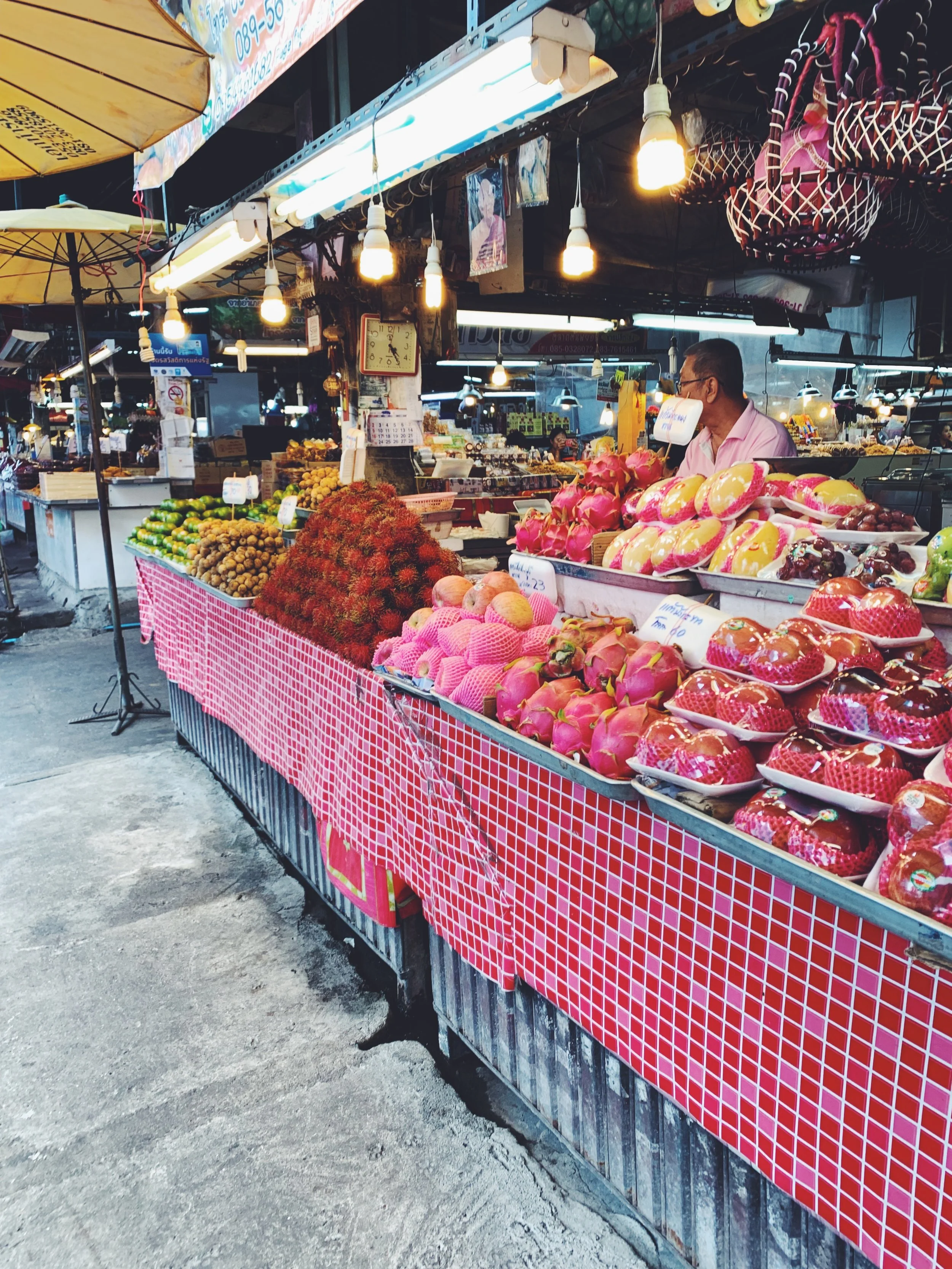The Environment and Food Choice
Happy Earth Day! While environment consciousness should definitely last for more than one day of the year, I feel that this day is always an important reminder to do your part in making the world a beautiful place. Personally, I always get kind of overwhelmed when thinking about environmental issues as the problems often seem too monumental for my actions to have any impact. Yet, it is important to remember all of the little changes you can make from day to day that can have an impact longterm, especially in shifting the food you eat to have less of an environmental impact. While it is nearly impossible to have all of your meals be completely environmentally friendly, this post details some specific things I like to keep in mind when trying to eat in a way that impacts your environment the least!
1.) Shop local when possible.
Shopping locally has come to be one of my favorite things. While it is typically a bit more expensive than a grocery store, buying select local produce or eggs from a local farm can do a lot to reduce pollution and support your local economy. Instead of your food having to travel thousands of miles by plane and truck, it now just travels a few miles before making it to your plate. Yes, when eating in a dining hall and being on a tight budget, eating locally often is nearly impossible. But, if wanting to get some groceries, I suggest going to the farmers market and picking up a couple of things before going to the grocery store!
Not taken in Memphis but all of this food was local to this region! So cool
2.) Eat less meat.
Now this is not to say that going full-out vegetarian is suitable for every person and their own dietary needs. However, meats do produce more carbon dioxide than other foods and reducing your intake of these foods can effect on the environmental impact caused by the meat industry. The meat industry itself actually causes about 20% to 50% of all greenhouse gas emissions and it takes about 2,000 gallons of water to produce just one pound of beef. So, even staying away from meat for one day a week or one meal a day can have an impact. There are really awesome non-meat options like veggie burgers, tempeh, tofu etc. at almost any restaurant that you go to that are worth a try!
3.) Shop seasonally.
Shopping for in-season foods is great because it also is typically less expensive! And, these foods are much more nutritious because they are able to grow naturally with much less human assistance.
Some seasonal summer fruits, veggies, and flowers!
4.) Choose foods with minimal packaging.
Shopping for foods that are not packaged as much helps with the environmental impact of the packaging. In addition, more highly packaged foods are often more processed and use more fuel to make.
5.) Reduce food waste.
I am personally so bad at this one. But for real, making sure that you do not buy more fresh foods than you are able to eat is so important. Not only does it waste money when you waste food, but these foods that are ultimately thrown away use all of the water and pollution from transportation without the actual benefit of even eating the food! One thing that I have started doing lately is freezing fruits and veggies that start ripening more quickly that I am able to use them.
6.) Be conscious of the amount of water it takes to produce the food you eat.
Like I said before, it takes about 2,000 gallons of water to produce one pound of beef. But, meat is not the only thing that uses a ton of water to produce. In order to produce just one almond, it takes 1.1 gallons and 1,900 gallons to produce one pound of them. This stifling information has definitely made me reconsider getting almond milk in my coffee! This website gives some more statistics as far as the gallons of water used to produce specific foods.
It should definitely be stated that I am nowhere near an expert at eating environmentally friendly. But, it is something that I do make an effort to keep in mind with each meal I eat and each item I buy from the store. I will admit that lots of the foods I eat somewhat often such as almonds and bananas have to be shipped far distances and require lots of water to be produced. Yet, by being conscious of this information, I have lately tried to reduce my consumption of these foods and have tried to choose other local or seasonal foods over these when I have the option to do so. As a college student who mainly eats in the dining hall during the school week, I know that it is very much impossible to know where exactly each item on my plate was sourced. Yet, by doing things that I can control such as reducing food waste and limiting meat consumption, I am still able to be environmentally conscious in my food choice. Food has such a huge impact on all aspects of the environment, and therefore, the care that you put into your individual food choice has just about as much impact to our planet as making an effort to recycling does.
Don’t let the conversation end here, there is so much more to discuss on this topic of the environment and food choice that I am simply skimming over. This earth day, be sure to continue the conversation. :)








